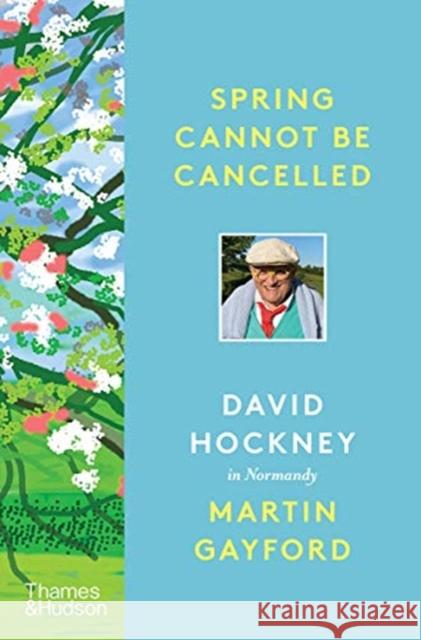Spring Cannot be Cancelled: David Hockney in Normandy - A SUNDAY TIMES BESTSELLER » książka
Spring Cannot be Cancelled: David Hockney in Normandy - A SUNDAY TIMES BESTSELLER
ISBN-13: 9780500094365 / Angielski / Twarda / 2021 / 280 str.
We have lost touch with nature, rather foolishly as we are a part of it, not outside it. This will in time be over and then what? What have we learned?... The only real things in life are food and love, in that order, just like [for] our little dog Ruby...
and the source of art is love. I love life.' DAVID HOCKNEY Praise for Spring Cannot be Cancelled: 'This book is not so much a celebration of spring as a springboard for ideas about art, space, time and light. It is scholarly, thoughtful and provoking' The Times 'Lavishly illustrated...
Gayford is a thoughtfully attentive critic with a capacious frame of reference' Guardian 'Hockney and Gayford's exchanges are infused with their deep knowledge of the history of art ... This is a charming book, and ideal for lockdown because it teaches you to look harder at the things around you' Lynn Barber,The Spectator 'Designed to underscore [Hockney's] original message of hope, and to further explore how art can gladden and invigorate ... meanders amiably from Rembrandt, to the pleasure principle, andouillette sausages and, naturally, to spring' Daily Telegraph On turning eighty, David Hockney sought out rustic tranquillity for the first time: a place to watch the sunset and the change of the seasons; a place to keep the madness of the world at bay.
So when Covid-19 and lockdown struck, it made little difference to life at La Grande Cour, the centuries-old Normandy farmhouse where Hockney set up a studio a year before, in time to paint the arrival of spring. In fact, he relished the enforced isolation as an opportunity for even greater devotion to his art. Spring Cannot be Cancelled is an uplifting manifesto that affirms art's capacity to divert and inspire.
It is based on a wealth of new conversations and correspondence between Hockney and the art critic Martin Gayford, his long-time friend and collaborator. Their exchanges are illustrated by a selection of Hockney's new, unpublished Normandy iPad drawings and paintings alongside works by van Gogh, Monet, Bruegel, and others. We see how Hockney is propelled ever forward by his infectious enthusiasms and sense of wonder.
A lifelong contrarian, he has been in the public eye for sixty years, yet remains entirely unconcerned by the view of critics or even history. He is utterly absorbed by his four acres of northern France and by the themes that have fascinated him for decades: light, colour, space, perception, water, trees. He has much to teach us, not only about how to see...
but about how to live.











